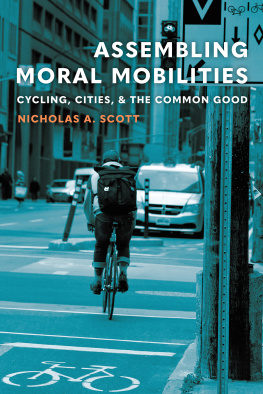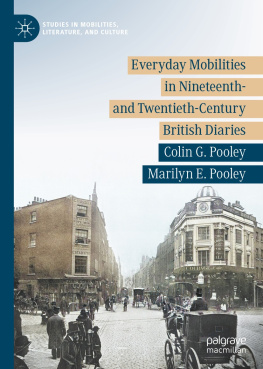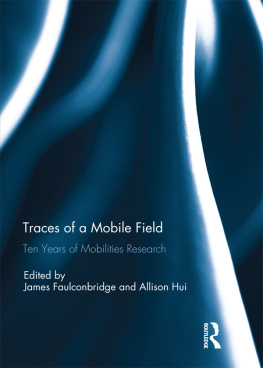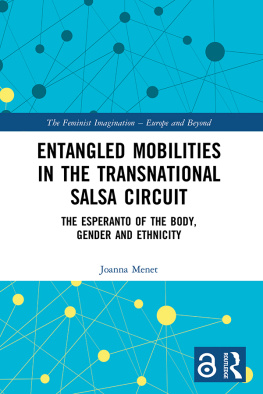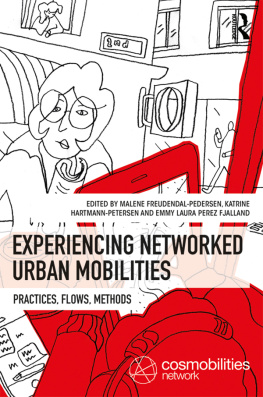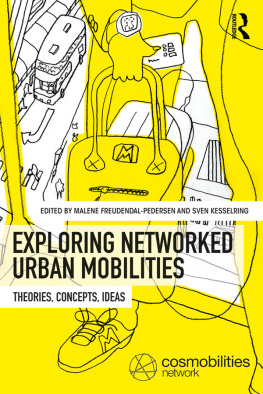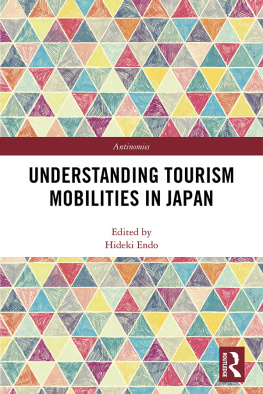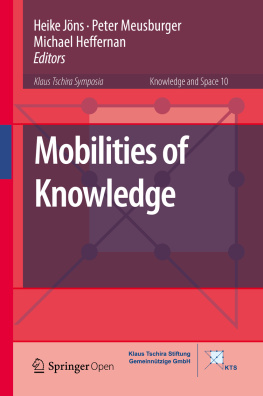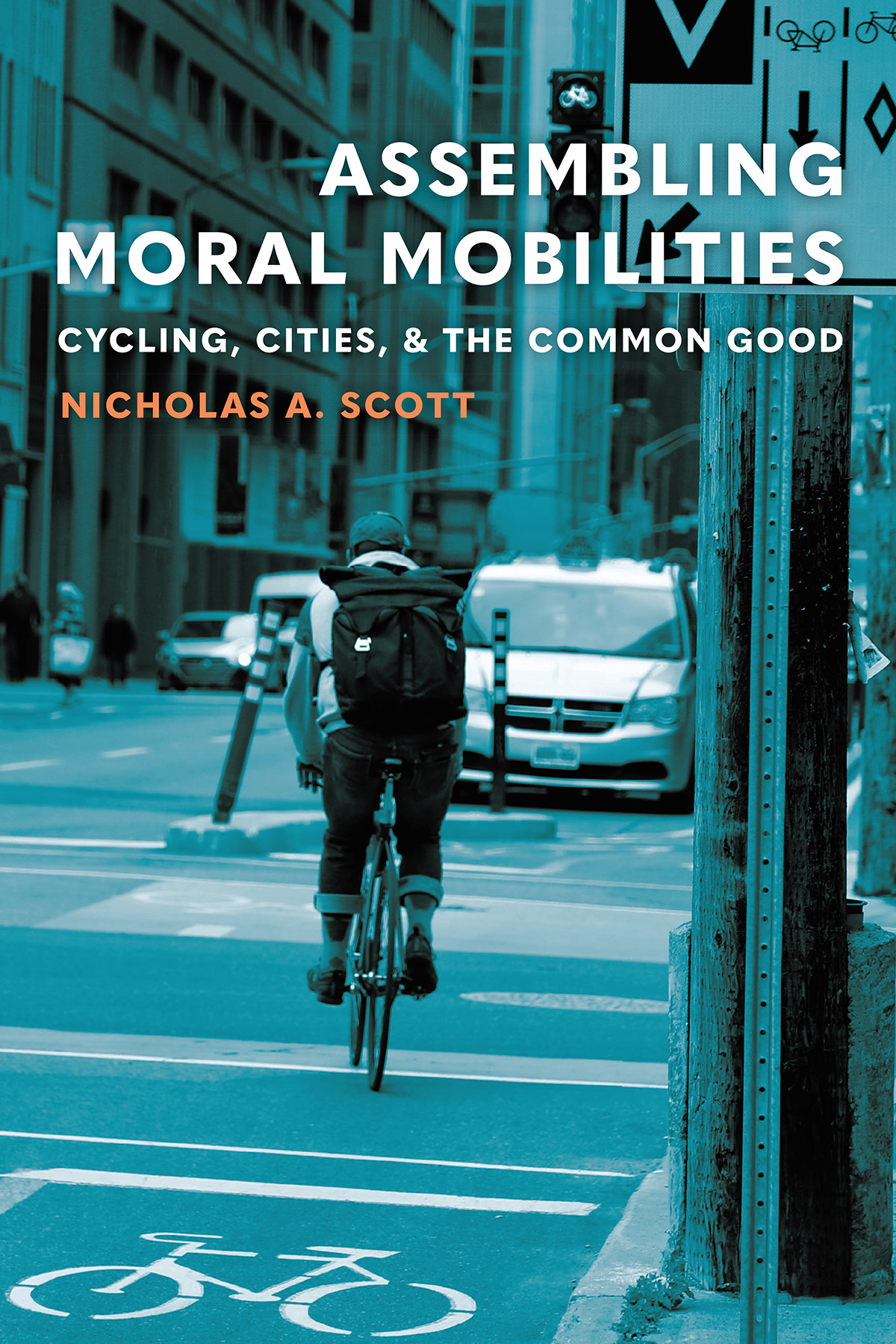
Weaving together insights from transport and mobilities research, urban planning, and ethnographic encounters gleaned on ride-alongs with cyclists in Canada and around the globe, Nick Scott takes us along on an enlightening journey in search of a good bike lane into the future.
Phillip Vannini, author of Off the Grid: Re-Assembling Domestic Life
Drawing on creative ethnographic vignettes, these lively stories highlight the pressing need for more focus on equity, social justice, and expansion of biking infrastructures to diverse populations.
Mimi Sheller, author of Mobility Justice: The Politics of Movement in an Age of Extremes
Assembling Moral Mobilities
Cycling, Cities, and the Common Good
Nicholas A. Scott
University of Nebraska Press | Lincoln
2020 by the Board of Regents of the University of Nebraska
Cover designed by University of Nebraska Press; cover image is from the interior.
All rights reserved.
Library of Congress Cataloging-in-Publication Data
Names: Scott, Nicholas A., author.
Title: Assembling moral mobilities: cycling, cities, and the common good / Nicholas A. Scott.
Description: Lincoln: University of Nebraska Press, [2020] | Includes bibliographical references and index.
Identifiers: LCCN 2019015600
ISBN 9781496217127 (cloth: alk. paper)
ISBN 9781496219398 (epub)
ISBN 9781496219404 (mobi)
ISBN 9781496219411 (pdf)
Subjects: LCSH : Bicycles. | Urban transportationPlanning. | City planning.
Classification: LCC HE 5736 . S 296 2020 | DDC 388.3/472dc23
LC record available at https://lccn.loc.gov/2019015600
The publisher does not have any control over and does not assume any responsibility for author or third-party websites or their content.
To an urban planet without roadkill, quietly revolving, rife with more-than-human life. To one less car. To one more bike.
Contents
This book was written with the support of a heterogeneous actor-network, including scholars, cities, comrades, and their bicycles. Im a slow typist, and the manuscript is already four days late, so Ill be brief. It couldnt have happened without financial support from Canadas Social Sciences and Humanities Research Council, and therefore the intrepid Natasha Wiebe at the University of Windsor, who helped me secure this funding, for which I am grateful. It also couldnt have happened without all the kind folks who invited me into their busy mobile lives to witness their work and intimate experiences with city cycling. I especially thank Ange, Matt, Colm, Meghan, Eric, Laena, Julia, Marja, Lisa, and Megan, whose stories and experiences somehow left me more inspired by cycling than I was when I began this book.
The book had a rocky start, to say the least. A stolen laptop in Montral and no backup left its first incarnation, a proposal with two chapters evaporated into thin air, before a move and radical change of context a year later from Motor City to Vancouver shook its foundations again. But I couldnt shake the idea, originally inspired by Jim Conley, to develop connections between pragmatic sociology and urban mobilities (thanks, Jim). Working in reverse chronological order back to those humble beginnings: for her unwavering support, I extend my warmest thanks to my editor, Bridget Barry (who remains remarkably calm about my manuscripts slow arrival). It is with utmost gratitude that I also thank the anonymous reviewers who read the manuscript with persnickety care, and whose immensely thoughtful and constructive feedback helped me whittle my arguments into their final shape.
The project could not have happened without the conversations I had with my colleagues at Simon Fraser University, including Michael Hathaway and Kathleen Millar, who provided vital feedback on my proposal, as well as Ann Travers, Lindsey Freeman, and others (Im blessed with amazing colleagues). I also thank my students at SFU who picked up pieces in the book in creative ways to help me sharpen it, including Dan Prisk and Morgaine Lee. I am especially thankful to Zo Sanderson and Sharlie Clelland-Eicker, students who became research assistants and mobile ethnographers and who collected some of the data underpinning chapter 2.
While writing the book in Vancouver I drew indispensable support and encouragement from a global network of scholars specializing in mobilities. I thank Justin Spinney for a critical discussion about methodology at an AAG meeting in Chicago. I am sincerely grateful for long walks and meandering conversations about movement in London and Santiago (and bike rides in Vancouver) with Soledad Martinez Rodriguez. I am indebted to Stephanie Sodero for far-flung collaborations that advanced my thinking while lifting my spirits. The same goes for Phillip Vannini, another collaborator who never ceased to be a source of inspiration. Malene Freudendal-Pedersen gifted an early insight (not long after Jims) at a conference in Caligari by connecting cycling to the common good. A recent talk by Mimi Sheller in Vancouver on mobility justice helped me close the book. Many, many other mobility folks, from Cycling and Society Symposium scholars to the Nordic Geographers, offered intellectual help along the way. An earlier version of some of the Ottawa material in the book was published in a 2016 article in the Canadian Journal of Urban Research, and I thank the anonymous reviewers for their insightful suggestions that helped move along my analysis.
Back east, before I moved to Vancouver, colleagues in the University of Windsors Sociology, Anthropology and Criminology Department generously offered comments, too, with which I refined early versions of the project; I especially thank Paul Datta. I am also grateful to Cristina Benneian, who helped open my eyes to the beauty of cycling in Motor City at a critical juncture in my life. I am profoundly grateful to Christian Pasiak and Michael Christensen in Ottawa, both of whom offered critical sounding boards as I fashioned the books underlying philosophical framework. And this project simply could not have happened without the longtime mentorship of Janet Siltanen, Fran Klodawsky, and Jacqueline Kennelly, whose formative guidance permeates the nature of this book.
Most of all, I am grateful for my family, for all their love and support, for teaching me how to bike and riding with me in the first place, and for listening to my never-ending stories about making this book.
In Search of the Good Bike Lane
Moooove bitch. Get out da way! Get out da way! thunders a voice out the windows of a black Chevrolet Suburban rolling into the intersection where Ruth is waiting to turn left. Traffic opens up for the Suburban to turn, but the enormous sport utility vehicle does not bite. Feeling a little annoyed toward the end of a frenetic ride home from work, Ruth gestures at the SUV (see photo 1). She talks to it about the traffic lights, as if the SUV might listen to her over the aggressive Ludacris lyrics.
Its green.
Obnoxious SUV s are not the most irritating thing on Ruths commute this spring afternoon in Ottawa. She acknowledges that Canadas capital has done more than many other cities to promote cycling for everyday travel, taking impressive strides over the last ten years to build good bike lanes, including a new generation of dedicated cycle tracks that make cycling safer and more efficient for everyone. These cycle tracks promise Ruth a refuge, if not from the noise and pollution of motor vehicles then at least from their right hooks, door prizes, trampling wheels, and devastating strikes from behind. This is good news for Ruth. Like many ordinary cyclists in Canada, she has a nose for good infrastructure, and like many women (Aldred et al. 2017), she prefers the safety of dedicated lanes and pathways that physically remove and protect her from car traffic. Still, Ottawas new cycle tracks, alluring as they are (and to be fair, they are very much a work in progress), are often themselves what frustrate Ruth most on her commute, and not simply because of their tendency to disappear when she needs them most.
Next page
